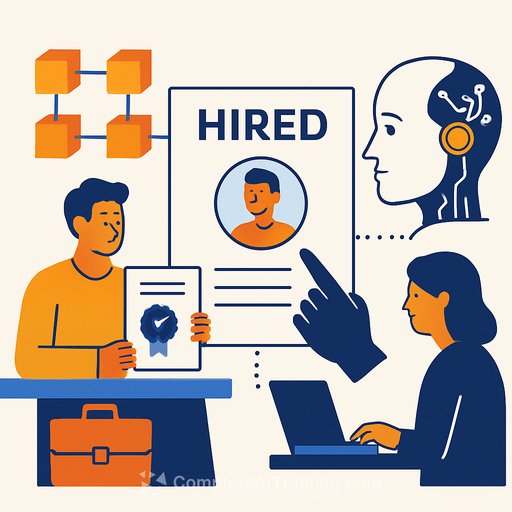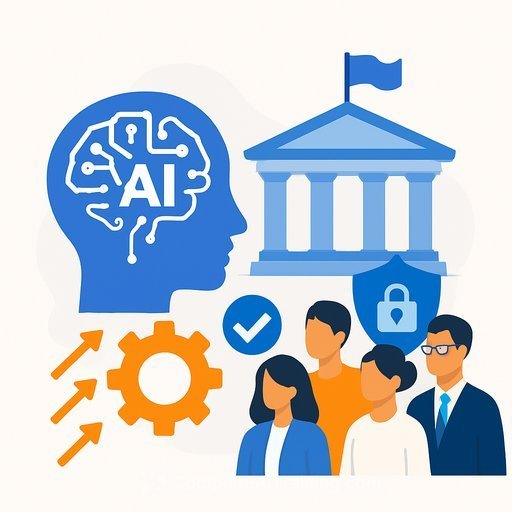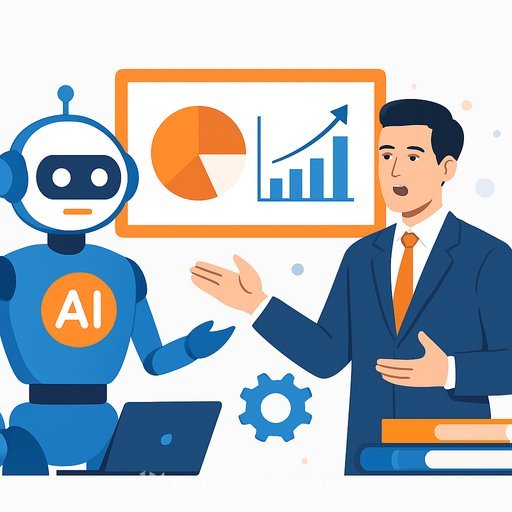Blockchain-Based Identity: A New Tool for HR Facing AI-Generated Applications
Hiring teams today are overwhelmed by a flood of AI-crafted resumes and cover letters. These applications look polished and convincing but often lack genuine proof of skills or effort. With AI tools generating thousands of personalized applications in minutes, the traditional cover letter has lost its power to showcase real intent or enthusiasm. The challenge for HR professionals is clear: how do you separate candidates who truly have the skills from those who simply know how to prompt AI?
Trust Issues Worsen with AI-Generated Applications
Hiring has always depended on trust signals like resumes, references, and degrees—none of which provide airtight verification. Job titles get inflated, education can be overstated, and past achievements exaggerated. Now, AI adds another layer of complexity by wrapping unverifiable claims in smooth, eloquent language. For sectors like crypto or decentralized organizations, where hiring is often fast and informal, this creates a risky environment. Simply adding more AI detection tools won’t fix this. What’s needed is a stronger, more verifiable foundation for trust.
The Case for Verifiable Reputation and Onchain Employment Records
Decentralized identity (DID) systems can prove that an applicant is a real person—not a bot. But proving existence is just the first step. The real question is: what has the candidate actually done? Emerging solutions aim to make professional history, credentials, and contributions verifiable and portable. This means moving beyond static resumes to dynamic, programmable records that can be queried or verified without exposing every detail.
Technologies like zero-knowledge proofs allow candidates to control what information they share and with whom. Many professionals in Web3 already operate through pseudonymous identities backed by verifiable actions, not just job titles. DIDs help confirm “real humans,” while verifiable reputation confirms “real contributors.” This shift is critical for the hiring process.
From Traditional HR Filters to Smart Contract Gates
Programmable reputation could reshape how industries vet candidates. Whether for grants, hiring rounds, or token sales, provable credentials can act as reliable filters. You can’t fake contributions like a merged pull request in a core repository or a course completion tied to an NFT issued by a smart contract. This makes trust composable and automatically verifiable within platforms and protocols.
Currently, verifiable onchain credentials include contributions, learning history, and certifications. Soon, entire work histories may be stored and validated onchain, transforming how HR teams assess qualifications.
Building a Stronger Trust Foundation for Hiring in the AI Era
The rise of AI-generated applications highlights a larger issue: the breakdown of trust in hiring. Self-reported credentials without verification have long been the norm, but now the gap between polished applications and real skills is wider than ever. Blockchain-based identity and credential systems provide a way to verify claims and base hiring decisions on data you can trust.
It’s time to stop equating polished language with proven ability. If HR wants to stay effective in a world flooded with AI-generated content, rebuilding trust with verifiable, onchain credentials is a practical and necessary step.
For HR professionals interested in enhancing their understanding of AI tools and credential verification, exploring resources like Complete AI Training can provide valuable insights and courses tailored to today’s hiring challenges.
Your membership also unlocks:






